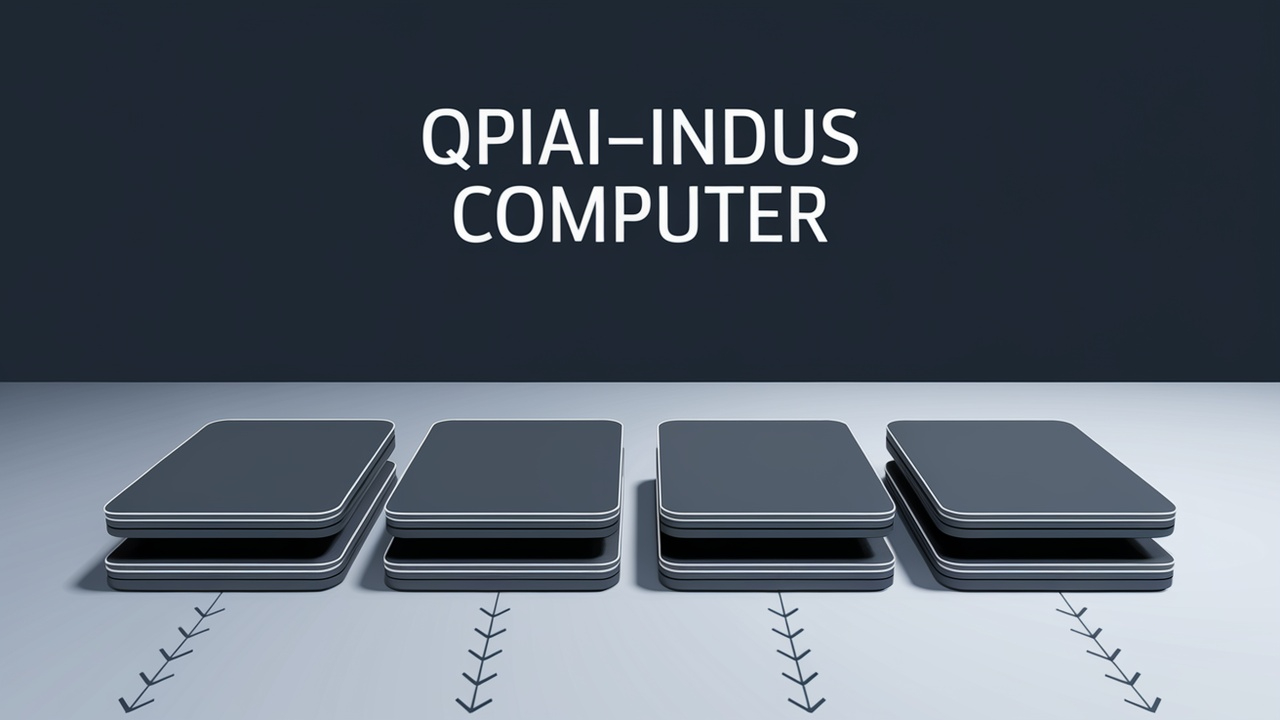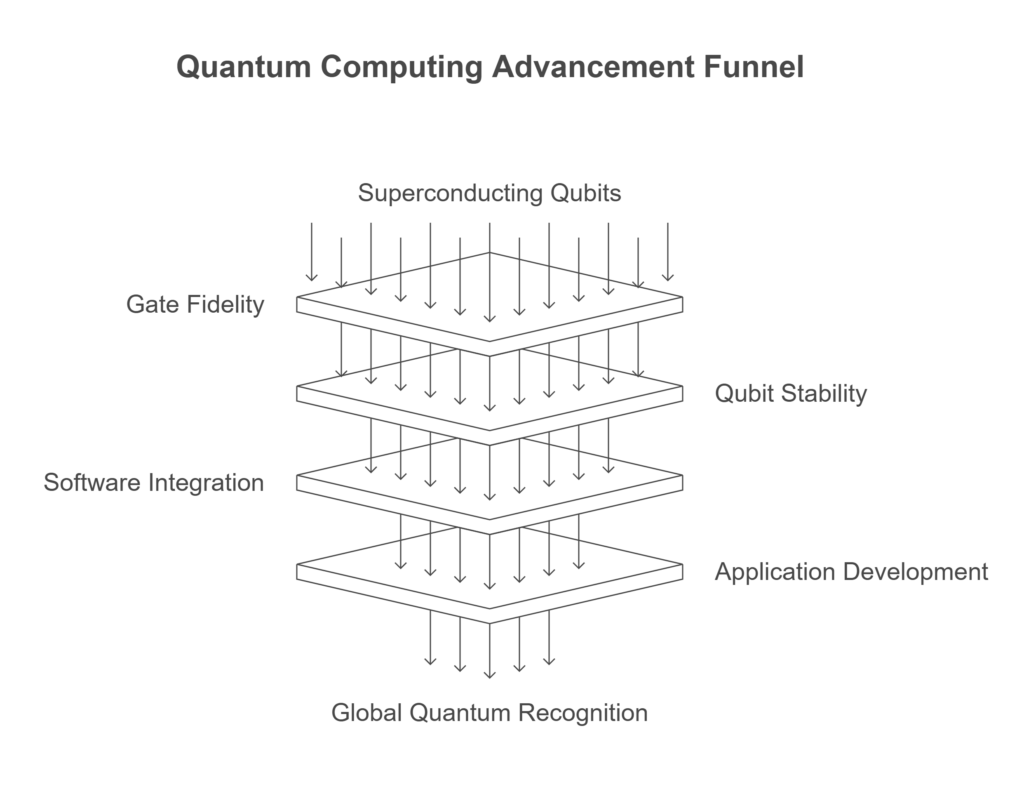You are limited to information up until the year of October 2025.
BENGALURU, India — QpiAI, a premier quantum computing startup, introduced India’s first 25-qubit quantum computer, QpiAI-Indus, on 14 April, 2025.

Announced on World Quantum Day, the full-stack superconducting system represents a significant leap for India’s tech aspirations. The launch, supported by the National Quantum Mission, is expected to accelerate innovation and increase competitiveness in areas such as healthcare, finance and science and technology.
A Milestone for India
The system, which is called QpiAI-Indus, employs 25 superconducting qubits, which are tiny circuits that perform calculations using quantum mechanics. Whereas normal computers use bits (0 or 1), qubits can be 0 and 1 at the same time, making calculations much faster. QpiAI’s system demonstrated a single-qubit gate fidelity of 99.7% and two-qubit gate fidelity of 96%. Its T1 and T2 times — measures of qubit stability — are 30 milliseconds and 25 milliseconds, respectively. QpiAI projects these will soon arrive at 100 milliseconds and at 1 millisecond in early 2026.

This system brings together quantum processors, a unique hybrid Quantum-HPC software stack, and top AI-driven tools including QpiAISaaS and QpiAI-Opt. They enable users to tackle complex challenges in drug discovery, materials science and logistics. QpiAI also has 11 patents in place and its qubit manufacturing based on AI also makes it different. “This launch positions India on the global quantum map,” a QpiAI representative said. “We’re creating tools for real-world applications.”
The Role of National Quantum Mission
Supporters of QpiAI include India’s National Quantum Mission (NQM), launched in 2023 with funding of ₹6,003.65 crore (approximately $730 million). Project NQM targets the construction of 20-50 qubit systems in 3 years, 50-100 qubit systems in 5 years, and also systems 50-1,000 qubit systems in 8 years. This is led by QpiAI, one of the eight startups funded by the Department of Science and Technology (DST). The launch was announced on LinkedIn by the DST, a QpiAI shareholder, that mentioned its engagement with companies like QpiAI as part of India’s tech narrative.
To maintain stability of qubits, QpiAI-Indus works at the cryogenic temperature (near absolute zero). Its software stack combines quantum and classical computing, making it accessible for industries. The system also supports hybrid workflows, where quantum algorithms are used at the same time as machine learning is. QpiAI aims to expand to 128 NISQ qubits within the next two years and 100 logical qubits by 2030—a road towards fault-tolerant quantum computing.
Global Context and Challenges
We are in a global race for quantum computing. In 2024, Google’s 105-qubit Willow chip solved a task in five minutes that a supercomputer would take 10 septillion years to do. Microsoft’s Majorana 1 chip employs stable topological qubits. While QpiAI’s 25-qubit system is smaller than some others, it is a sizable advance for India, which hadn’t previously had a system larger than 7 qubits at Tata Institute of Fundamental Research.
Challenges remain. One of the downsides of a qubit is that they are sensitive to noise, which creates errors. QpiAI employs Q-LDPC codes to correct for errors in its fault-tolerant qubits. Scalability is another challenge, as many systems, including IBM’s, can currently pack only 5,000 qubits into a single cryostat. QpiAI’s path to 1,000 qubits looks to compete globally. Early revenue for the startup from licensing of its software and its bootstrapped growth since 2019 both look promising.
Impact on Industries
QpiAI-Indus is a game-changer for industries. In health care, it might accelerate drug discovery by simulating molecules. In finance, for example, it could optimize trading models. It could make predictions better for climate modeling. QpiAI has moved these solutions to a hybrid platform that companies can use through cloud-based interfaces. India’s quantum talent base will likewise grow with the NQM’s focus on workforce training, enabling longer-term innovation.
India’s quantum push is consistent with global trends. The U.S., China and Europe pour hundreds of millions into quantum tech. The launch of QpiAI puts India a step ahead — at least in Asia. Collaborations with research institutes and industries will play a major role. The company’s development of CMOS-based spin qubits in future models displays its forward-thinking vision.
What’s Next for QpiAI
The launch of QpiAI is only the beginning. Scaling to 64, 128, and 1,000 qubits will be a challenge of its technology and going concern. Public-private partnerships and support from the NQM will be critical. If successful, it could position India as a global quantum innovation hub, attracting talent and investment from around the world. Its emphasis on practical applications could bring about early adoption across industries, paving the way for other startups.
The world quantum race is getting hotter. QpiAI will need to innovate while ensuring reliability to compete. Its AI-powered features and scalable designs set it apart. QpiAI-Indus could drive a technology revolution as India builds its quantum ecosystem and quantum computing becomes real for businesses and researchers. Keep an eye on QpiAI’s next moves.